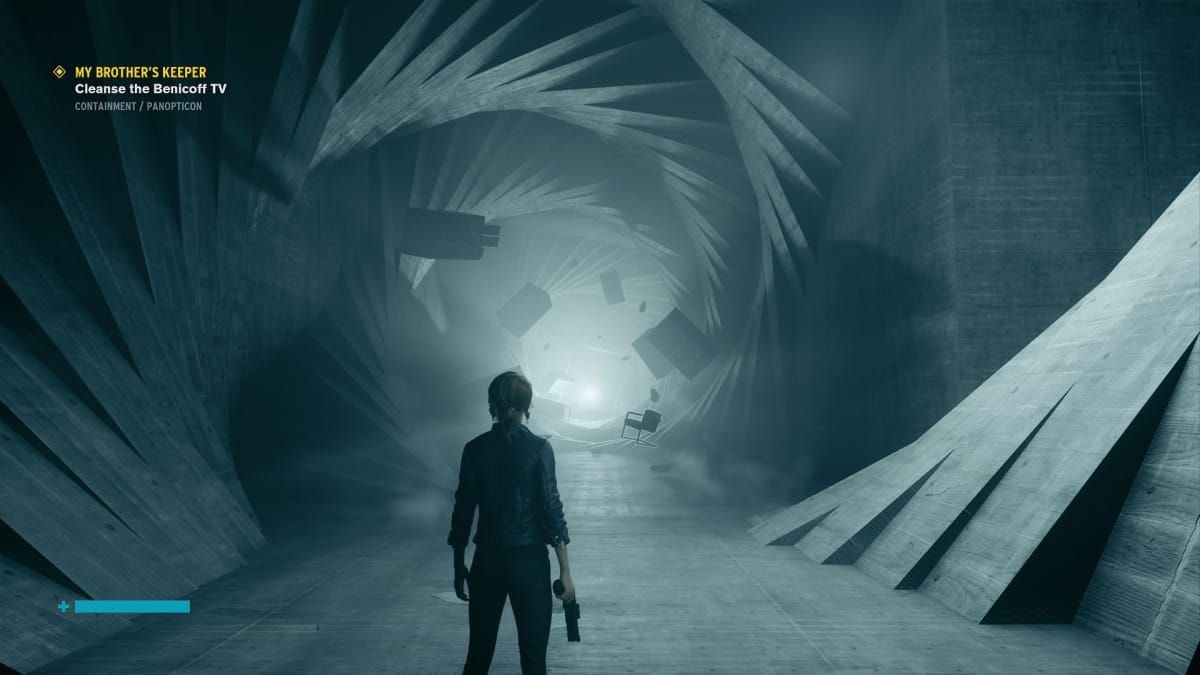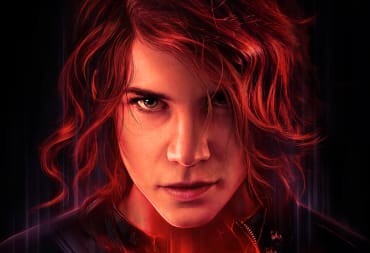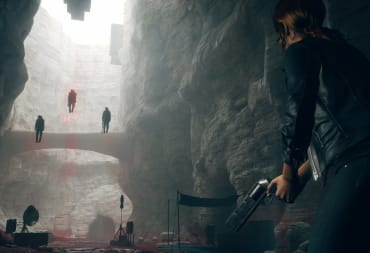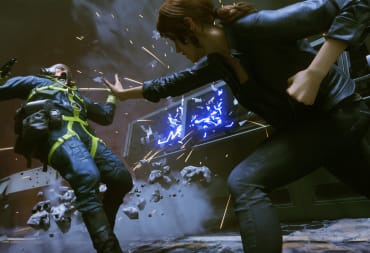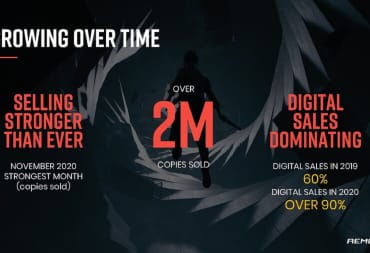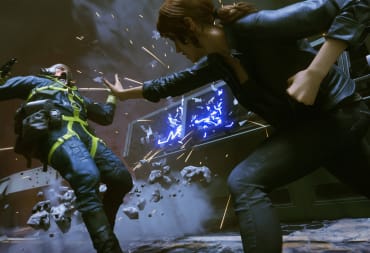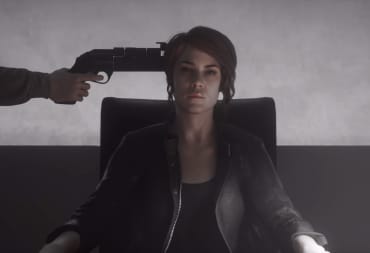Recently, Remedy Entertainment announced new downloadable content for their mind-bending sci-fi action game, Control. Releasing on Aug. 27, exactly one year after the original game's release, the AWE expansion includes not just new content for the player to enjoy, but a tantalizing prospect of a crossover. It appears Control's hero, Jesse Faden, will finally meet long-thought-dead writer and lead of the 2010 psychological thriller, Alan Wake.
Following the trailer, Remedy then made another bold announcement. All easter eggs to their past work found in Control were not just fun extras; they were world-building details. It appears that the creative lead writer, Sam Lake, is taking a page from the Marvel Cinematic Universe and declaring the start of a Remedy Shared Universe, with Control and Alan Wake being the start of greater stories to come.
It is a bold creative choice considering how difficult it is to produce a high-quality video game, let alone an entire series of them that believably exist in the same world. It got me thinking, not just about how exactly a video game shared universe should work, but whether or not Remedy could pull it off.
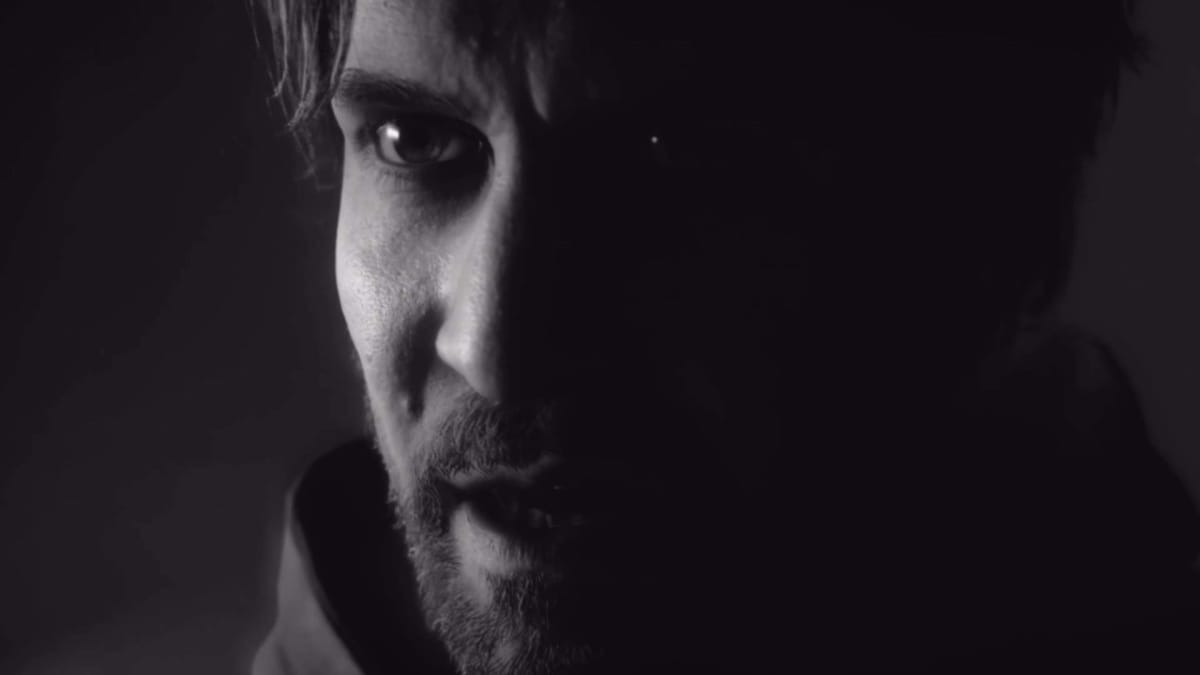
Thankfully, the success of the MCU has laid out a solid blueprint for how it is done. Your world needs a solid foundation and consistency. Play it too fast and loose and you fall into a Tommy Westphall situation. Also, each installment of this shared world must stand on its own, the promise of continuity cannot carry everything. That's how you end up with Universal's failed Dark Universe project.
With all of this in mind, looking over all of the games Remedy has worked on in the past, there's a lot to admire. Aside from their first PC game, a racing/demolition derby joint called Death Rally, there's a very consistent style on display. Max Payne, Alan Wake, Alan Wake's American Nightmare, Quantum Break, and Control are all third-person action-adventure titles about human characters dealing with various forms of adversity. Max Payne is a gritty noir detective romp. Alan Wake is a psychological thriller about a writer losing his grip on reality. Quantum Break is a propulsive science-fantasy adventure about an experiment with time travel going horribly wrong. Finally, Control is a cerebral sci-fi story about a young woman unraveling a cover-up by a covert government organization that deals with the paranormal.
Each of these games feature human characters who are placed in an elevated or fantastical version of the real world, and these stories dabble in different genres and tones. This is prime real estate for a shared world.
As for how well these worlds are connected, that will require getting deep into the weeds. So spoilers ahead for Alan Wake, Alan Wake's American Nightmare, Quantum Break, and Control.
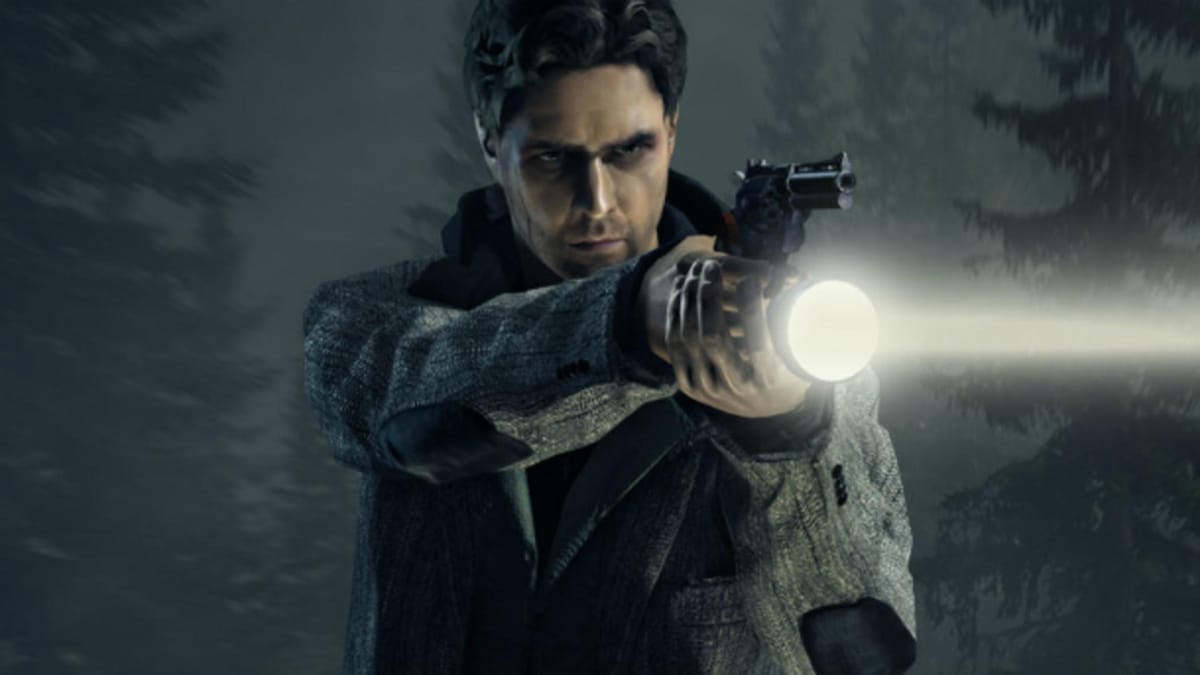
Alan Wake
Long story short, due to Remedy selling the rights to the Max Payne series, they couldn't use the character in their 2010 story. To work around this, however, the writers paid homage to their hard-boiled hero by having him be a character in a series of novels written by Alan Wake. The largest point comes with the last book in the series titled The Sudden Stop, where Alan kills Alex Casey off. Just to make the connection even more explicit, the final two pages of this book can be read, and they are narrated by Max's voice actor, James McCaffrey.
While it isn't an explicit link between the two series, it does show that Remedy is able to compartmentalize elements of their world and adjust expectations for the story they want to tell.
To whit, Alan Wake has writer's block after several bestselling novels and decides to leave the urban jungle of New York for a vacation in the small mountain town of Bright Falls. After some inscrutable events play out, Alan's wife goes missing, and pages of a manuscript are discovered throughout the town. The manuscript is of a horror story where a dark presence is slowly infecting the townspeople and coming after Alan. Worse still, the events are coming true.
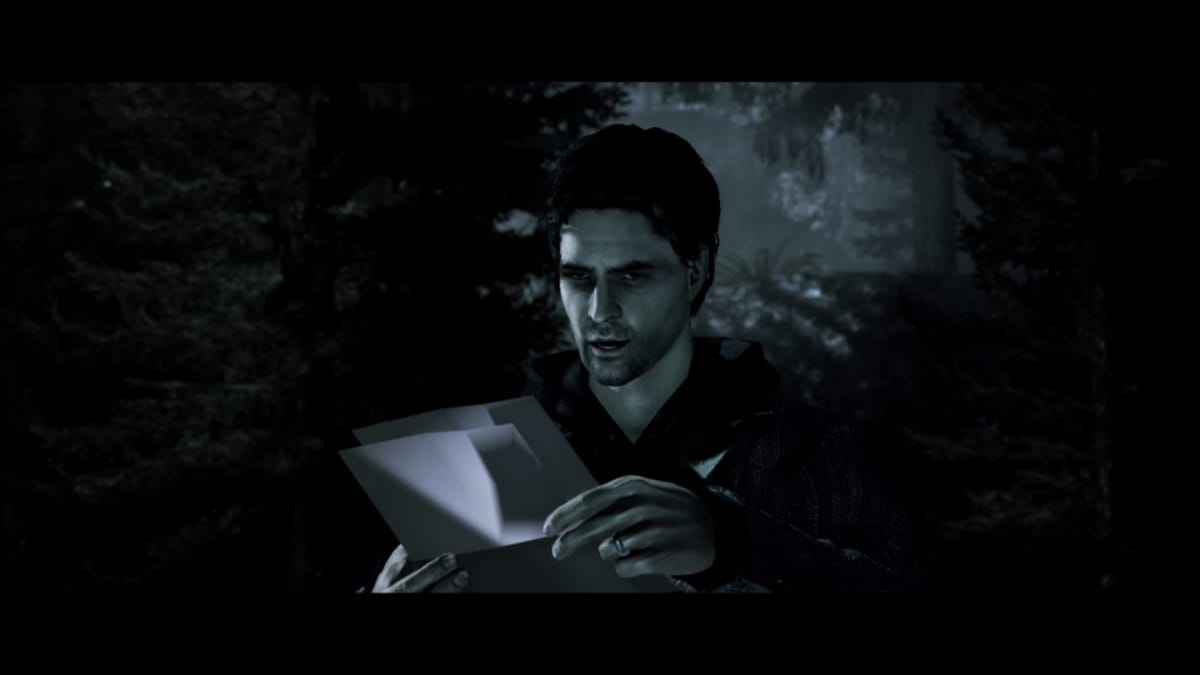
In a lot of ways, Alan Wake was a prototype for Remedy playing around with their world expanding beyond just one game. There were a series of web shorts, simply titled Bright Falls, that released on the Xbox 360 storefront coinciding with the original release, fleshing out the town and its residents further. And the Collector's Edition of the game included a journal called The Alan Wake Files depicting weird events happening in the town prior to Alan's arrival, the narrator of which pops up in the game's prologue as a support character.
This use of multimedia even persists in the very town of Bright Falls itself. There is a TV anthology show called Night Springs, an obvious homage to classic Twilight Zone. As the story unravels you come across the works of poet and author Thomas Zane, who encountered the sinister forces in Bright Falls in the 1970s. Somehow he erased himself from history, his cryptic poems and short stories acting now as a narrative and thematic breadcrumb trail for Alan.
Then, there's The Old Gods of Asgard: a pair of brothers who tapped into the same force Alan did to compose evocative, even prophetic, rock songs. Several of these songs pop up throughout the story, one of which is used as a crucial turning point in the story.
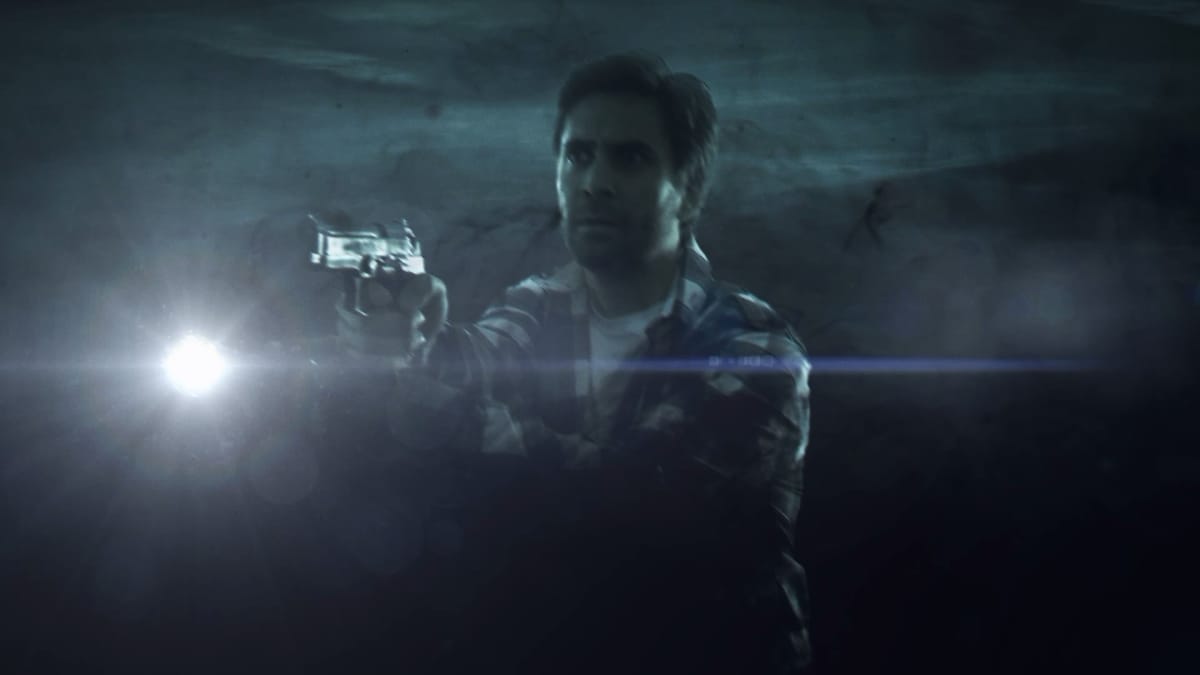
The bittersweet ending of the game also became a catalyst of sorts. Alan changes the manuscript and writes an ending where his wife and friends are safe and Bright Falls is spared the wrath of the supernatural. In exchange he is thrown into a dark dimension—a world divorced from time and space where imagination becomes real. So he stays locked away in front of a typewriter, trying to find some way to return home and not lose his grip on what is real while toiling in the dark.
Fans desperately wanted to know what would become of this protagonist, but mediocre sales led to the game becoming an underrated cult hit. Still, it showed that there was a community who wanted to know what happened next. But rather than take a financial risk on a full-blown sequel, Remedy had a more economical solution in 2012 with Alan Wake's American Nightmare.
On the whole, it was a fun side story that didn't really follow much. It felt more like a celebration of the character and the stories that could be told with him. Although it did include a little bit of cheeky self-reference: an arcade cabinet playing Death Rally in the background.
Thankfully, The Old Gods of Asgard keep connections going with a brand-new song playing in the game's climax. Better still, If you play a certain section of the song backwards, you can clearly hear the phrase, “It will happen again, in another town called Ordinary.” It's an in-universe warning of what is to come for Alan's world.
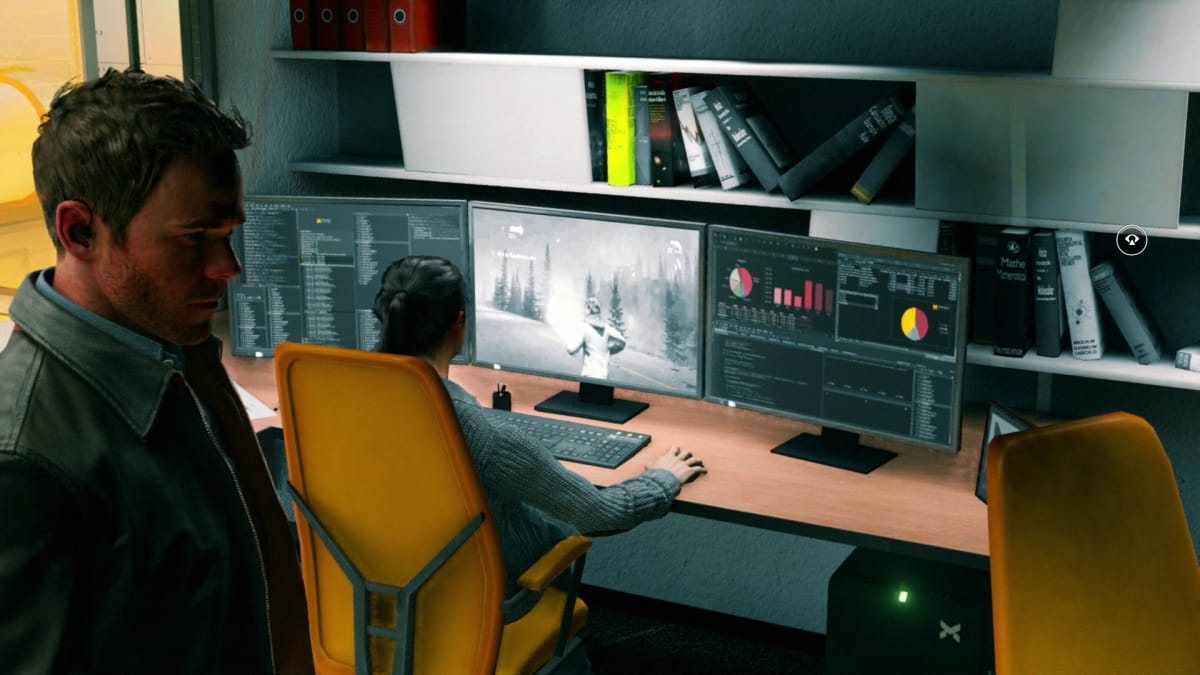
Quantum Break
Unfortunately, it is here that Remedy's shared universe credentials start to crack.
On the one hand, they clearly wanted to tell a completely separate story with big sci-fi ideas, but they also wanted to tease fans with a possible return to the world of Alan Wake.
It starts off innocently enough. Main hero Jack Joyce wanders through a college campus before making his way to a science lab to kick off the time-travel plot. Characters reference Alan by name, copies of The Sudden Stop can be seen, and people are even auditioning to be in an episode of Night Springs. The biggest promise is found in a tent, where Jack finds a live-action video called Return. The video appears to be a documentary revolving around a team of detectives investigating a string of disappearances in Bright Falls. It also tantalizes with brief appearances of Alan Wake, teasing a possible return to his story.
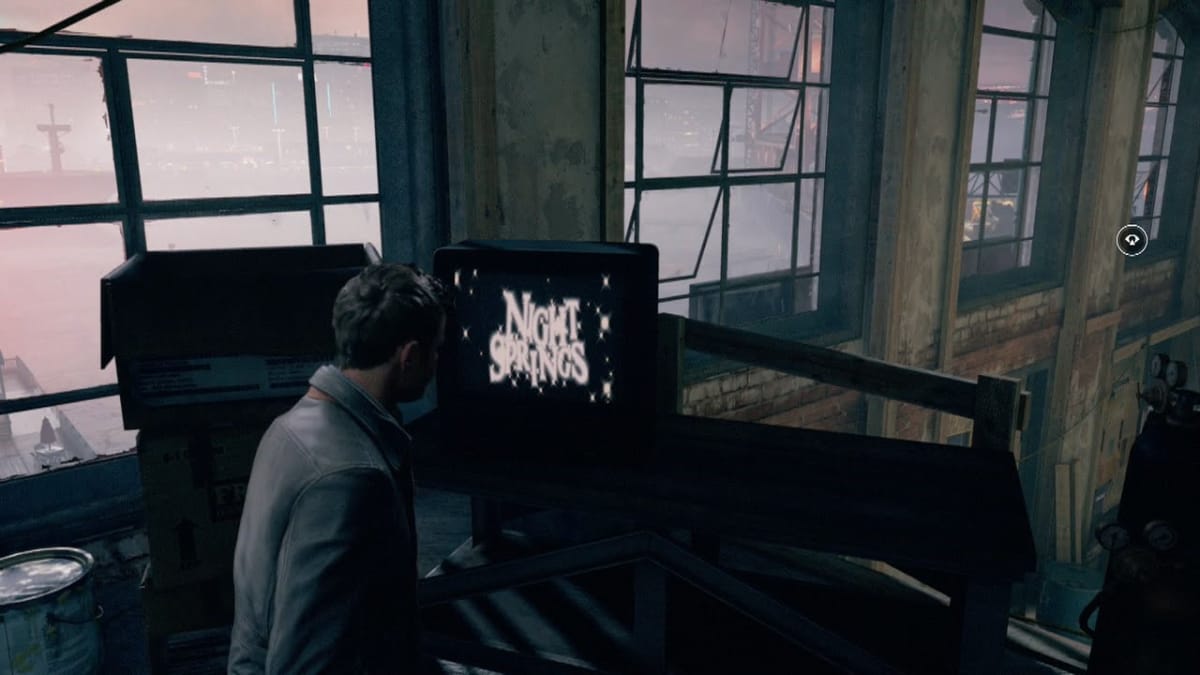
But this cheap pop continues and ends up breaking Remedy's own world building. As the game progresses, you can find monitors that have the Alan Wake game on it. Not a stand-in, not an imitation like Alex Casey, but outright footage of Alan Wake, bestselling author, running around Bright Falls fighting shadow monsters with a flashlight. You can even see a character in one of Monarch's offices playing the game, singing along to one of The Old Gods of Asgard's songs.
Does this mean Alan Wake is a video-game protagonist and a novelist in this world? Pair this with the Return trailer and it just falls apart further. Either in the time of Alan's disappearance his estate licensed a studio to make a dramatized game about his time in Bright Falls, which ends with him mysteriously vanishing—which would just be in really poor taste—or Remedy didn't fully think through the implications.
These elements are completely incompatible and break the carefully crafted suspension of disbelief Remedy has fostered up to this point. It's a break that doesn't completely unravel everything since there are no references to Quantum Break that pop up elsewhere. As such, this project can just be relegated to an experiment that didn't fully work.
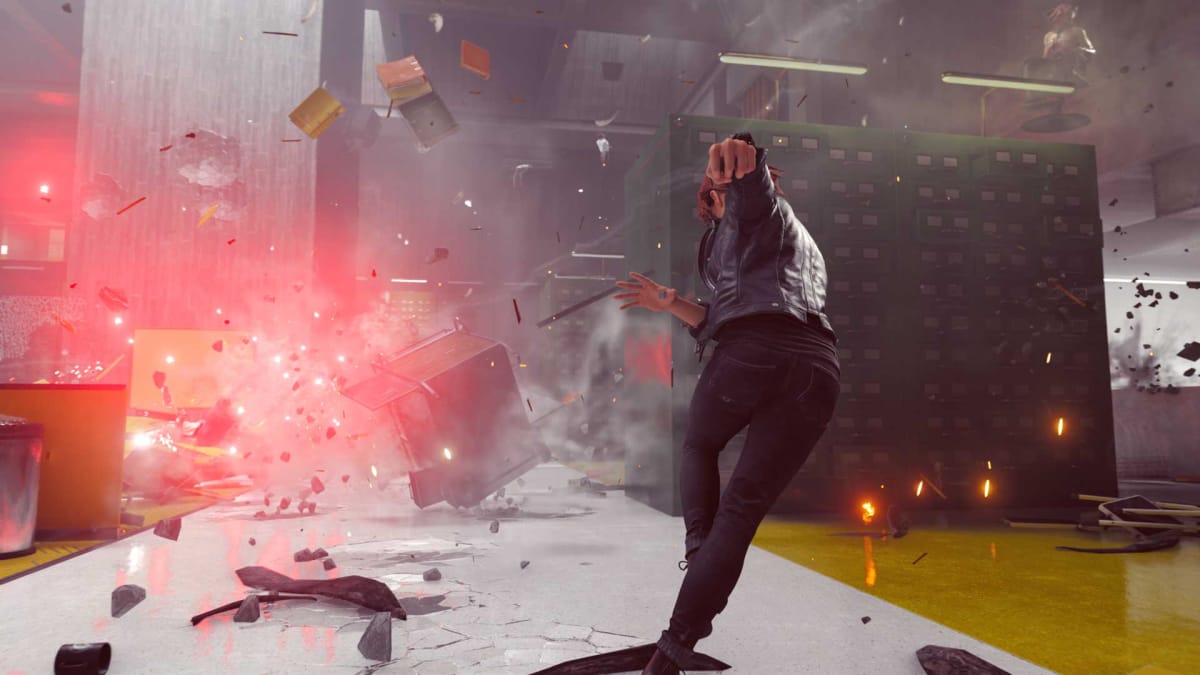
Control
This is where a lot of the disparate details finally start to click into place. Once again, the story is a self-contained bit of sci-fi intrigue. Hero Jesse Faden enters the Federal Bureau of Control, a covert organization dedicated to the containment and study of supernatural objects and people. It starts with her wanting answers about the disappearance of her brother and of some major horrible event that befell her hometown, something the FBC was heavily involved in. During her visit, an interdimensional horror known as The Hiss invades the building, kicking off the main conflict.
The rest is standard fare. Jesse gets superpowers and a magic gun, battles happen, reveals happen, and by the end she becomes the new Director of the FBC and uncovers the truth about her brother and her town.
Specifically it was thanks to a certain object in her home town that The Hiss was able to enter our world.
And the name of her home town was Ordinary; paying off the cryptic message from Alan Wake's American Nightmare that was set up eight years ago.
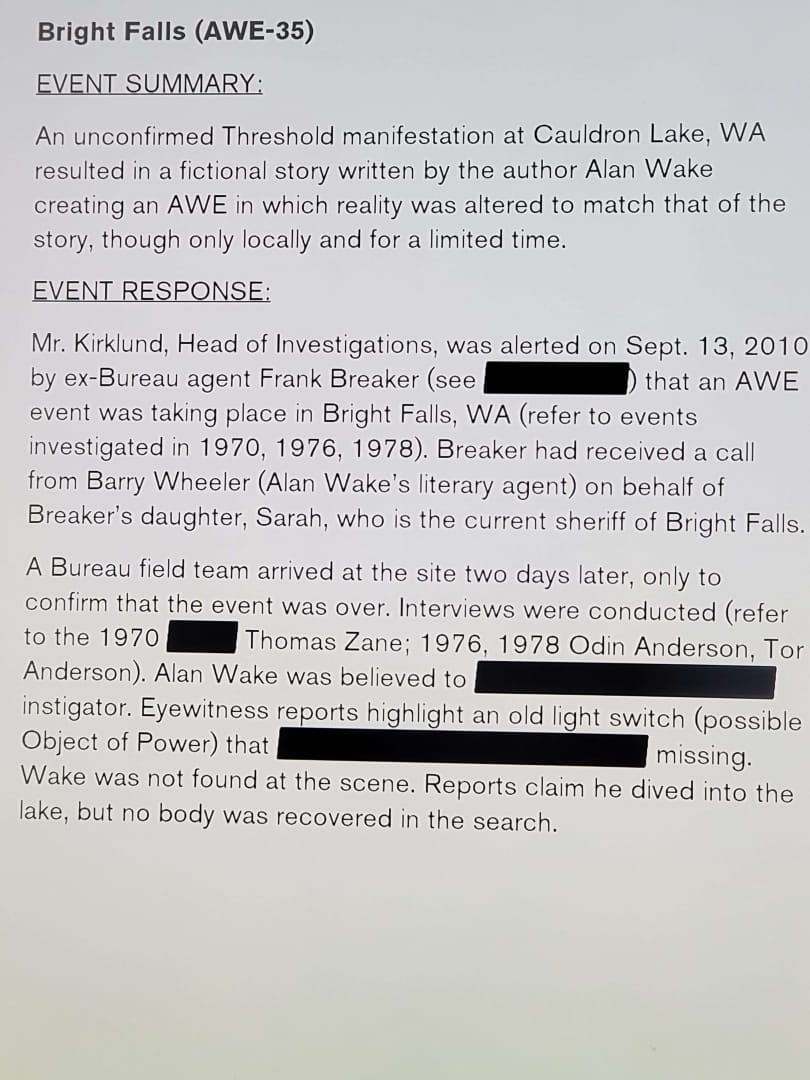
Better yet, there is hard evidence that the FBC are well aware of what happened in Bright Falls. Documents that discuss FBC agents exploring the town, commentary on the disappearance of Alan Wake, and speculation on what exactly caused the writer to disappear are all present. There are even terms used by the bureau to categorize and sort the odd events that happened, called Altered World Events.
The connections don't just end with direct references to Wake either. Jesse herself quotes a poem by Thomas Zane in an audio recording, which raises further intrigue considering he technically doesn't exist. And the rocking music that plays during Control's now-iconic Ashtray Maze sequence? It is a brand new single released by The Old Gods of Asgard, the lyrics of which foretell Jesse's origins as well as her final battle with The Hiss.
This is the kind of great expansion that a shared universe can grant. It brings the central conflict of Alan Wake into a new context while also demonstrating the scale of threats the FBC dabbles in. A writer's creative voice leading to actual changes to reality is just another case to them, but dealing with encroaching interdimensional horrors is the stuff they pull out all the stops against.
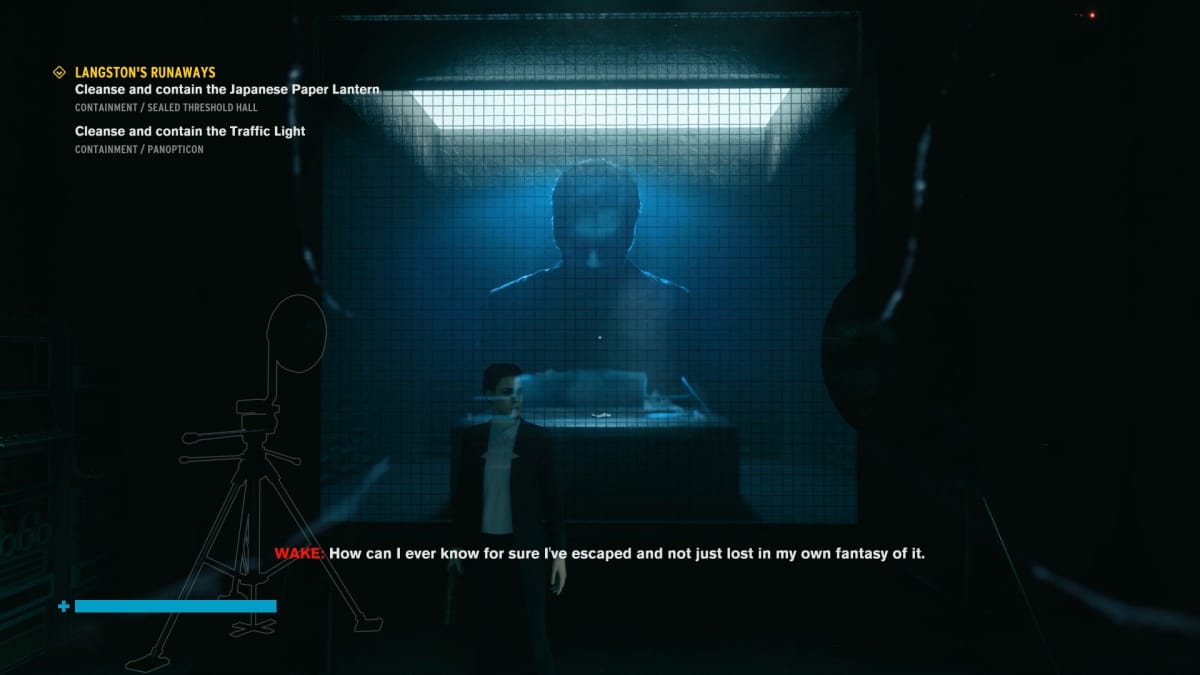
Going Forward
What does this mean for the upcoming AWE, the second Control expansion after The Foundation? Remedy has gotten a lot better at connecting their games with sly details, doing a lot with a little. They're also paying off their setups, leading to a feeling of completion for those who have put the pieces together before.
Remedy's writing team have demonstrated they have the chops to properly layer and frame their games to complement one another without overshadowing. For the most part, their connections benefit from being simple easter eggs and background details; most of the examples cited here are from easily missed collectibles after all.
At their worst, they treat the promise of continuity as blatant marketing. But at their most mindful they can keep simple shout-outs like Alex Casey tidy, and the connections don't pull focus like the FBC citing the Bright Falls incident.
If AWE really is going to be the beginning of a Remedy Shared Universe, based on their past work it is clear that Sam Lake and his team have stumbled but have their priorities in order. The real trick will be how they can balance the baked-in tone, atmosphere, and expectations of both respective games together. Thankfully, fans won't have to wait long to find out.
Have a tip, or want to point out something we missed? Leave a Comment or e-mail us at tips@techraptor.net
